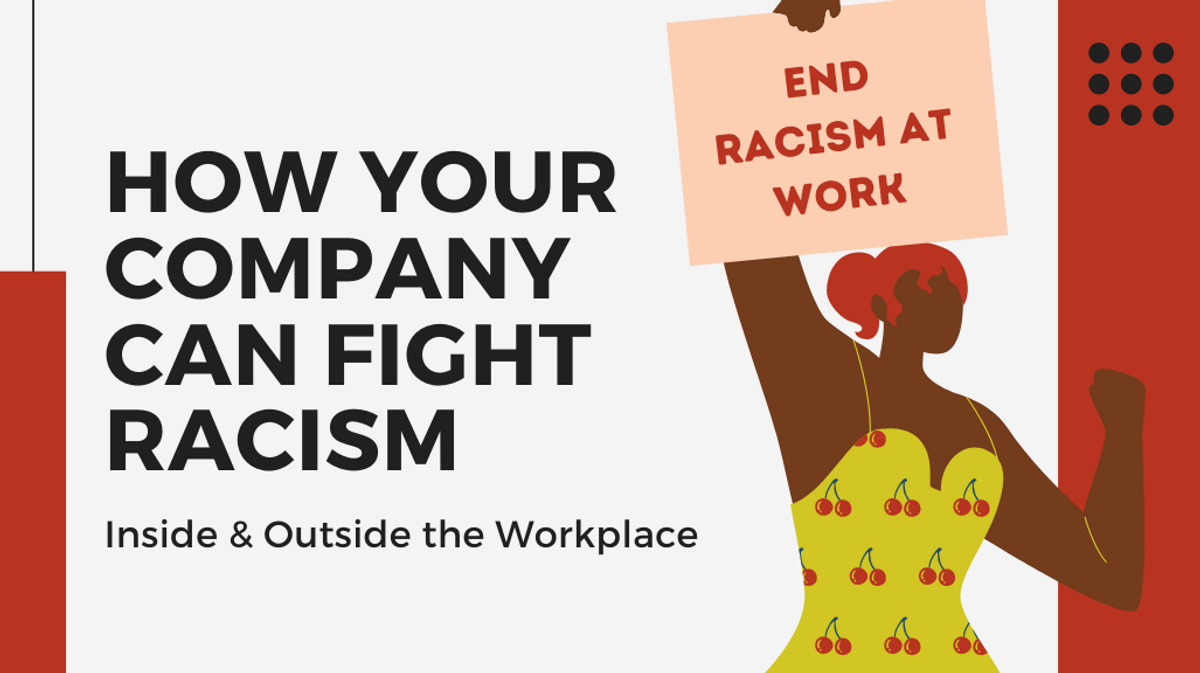Since the brutal murder of George Floyd, the demand to take a strong stance against racism has swept the nation.
However, while some companies have made statements to show up as an anti-racist company, or have put measures in place to better support Black staff and provide better messaging to their customer base, other companies have done nothing. If you work for a company that has been mostly silent, or has been vocal but has failed to accompany words with actions, how do you encourage your company to be better advocates for the Black community? How can you fight racism in the workplace?
Bring your concerns about the lack of messaging and action to the head of your Diversity and Inclusion department or HR department. If you work for a smaller company, go directly to the executive team, and encourage them to take any of the following steps:
Encourage them to get a message out
Company leaders must be challenged if they have yet to release a statement regarding their stance on the movement. Perhaps they couldn't find the right words or worry about offending their customer base, but the longer time goes on, the more uncomfortable it becomes. Ignoring systemic racism when it is everywhere is like ignoring an 18-inch infected gash on your leg. Employees notice. Customers notice. The gash will not heal on its own. Hard work and expertise is needed to heal both the physical wound and the emotional wound the country is experiencing.
Let your executive team know that not only is their inaction sending a message to the staff—particularly to their Black employees who do not feel valued at their organization—but also it sends the message to consumers that they just don't care. Mention that consumers are making buying decisions based on messaging about the Black Lives Matter movement; by staying silent, they are opening the company up for public pushback that can affect their bottom line.
Suggest a company-wide implicit bias training workshop
All forms of racism, whether it's microaggressions or overt violent racism, start with bias. And no matter how hard we all try, we all have implicit biases that were embedded in us by our upbringing, inequitable education systems, media, and more. When we are able to check our bias at the door, we can make a true difference in how we treat our coworkers, our vendors, and our clients.
While diversity and inclusion training company-wide is important, having a session exclusively on implicit bias will help the team work through some of their own biases and give them steps on how to correct those issues. This should be done with a trainer who creates a safe environment to explore our biases without shame and the tools to be better.
Suggest ways to support the Black community as an organization
If philanthropy is a core value of your company, you can suggest a list of organizations that your company can donate to that works to bring equitable solutions to the Black community.
However, not all companies, especially during COVID-19, are in a position to donate money. You can suggest that instead of a donation, your company utilizes Black-owned businesses as vendors. You can also work with the marketing department to share Black-owned businesses in your company's industry that could use more support.
See who's at the table
We all know the importance of ensuring that a company's staff is diverse, but this is also very important when it comes to the leadership team. If your leadership team is not diverse, ask if steps are being taken to correct that.
Is your board lacking in diversity? You can suggest a few Black or BIPOC leaders that may be a good fit to join your board.
Does your company host virtual events? Check to see if the speakers your company hosts are diverse, and if not, make suggestions of great speakers that could contribute to your organization's needs. For your research, you can do a search on LinkedIn or in Black associations for your industry.
Foster a company culture of empathy
As a Black woman, I can tell you that showing up at work with the internal and external pressure to be happy and positive is a heavy burden to carry. If you have not checked on your Black coworkers since the horrific events during Memorial Day weekend, they can still use more support. Each week there is a new story of another killing or a public display of racism; when you witness something like that, it's hard to show up as your whole self. For example, just 30 miles from my home a few weeks ago, someone put up a massive "Make America White Again" sign and placed it in the middle of the town square. Trying to keep focused when I am terrified of whether I am safe in my own city is an impossible ask.
Let your Black coworkers know that you are there for them, and ask what they need for support. If you are a manager and your Black direct reports haven't taken any time off, encourage them to use some time. Being a key player in fostering an empathetic work environment makes people feel seen and valued.
While Black people are dealing with this the hardest, it's a difficult time for us all. We can all use a little more flexibility where we can get it, and some grace can go a long way as we work together to fight white supremacy and heal.





